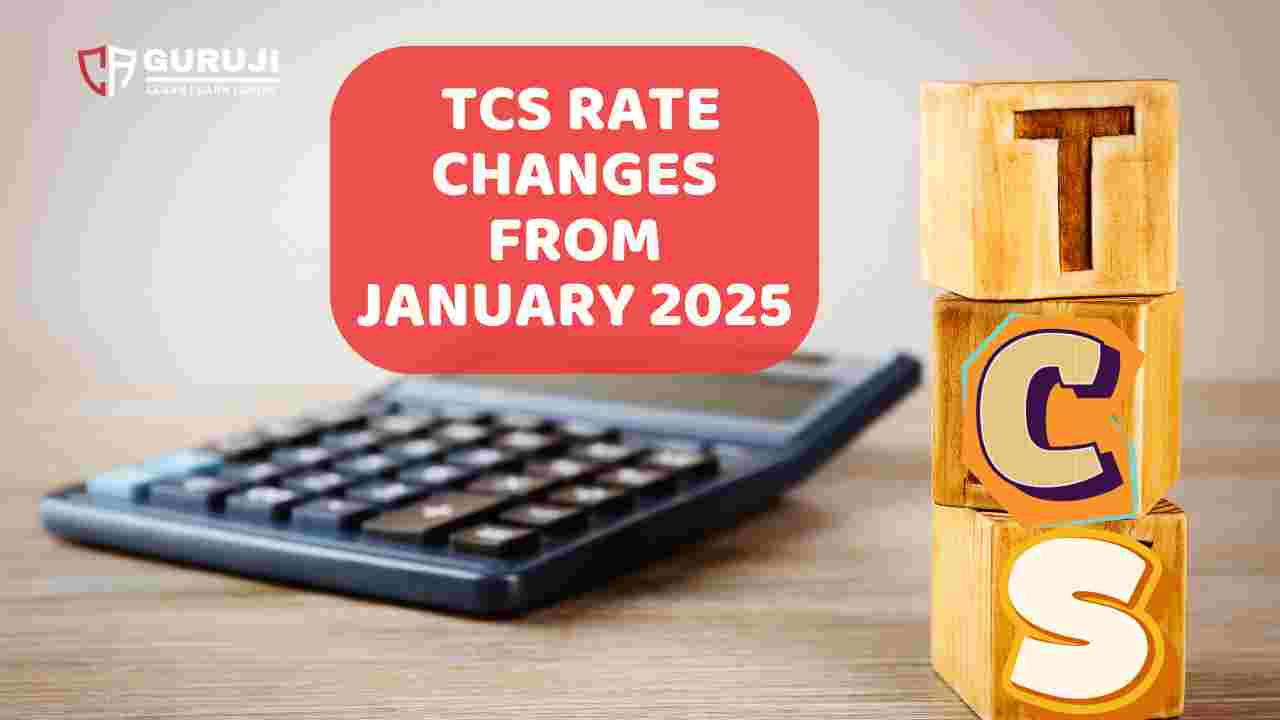Section 206C of the Income Tax Act outlines the Tax Collected at Source (TCS) mechanism, where sellers are obligated to collect tax at the source from buyers during specified transactions. This provision applies to certain goods, contracts, and remittances, ensuring compliance and upfront tax collection.
with the coming new year 2025 there are new changes added in TCS already by Finance Act(No.2) 2024 which are going to applicable from 1 January 2025
Section 206C(1): TCS on Specified Goods
Sellers are required to collect TCS on certain goods when the payment is credited or received, whichever is earlier. The applicable rates for various goods are provided in the following table:
| Nature of Goods | TCS Rate |
|---|---|
| Alcoholic liquor for human consumption | 1% |
| Tendu leaves | 5% |
| Timber obtained through a forest lease | 2.5% |
| Timber obtained by other means | 2.5% |
| Any other forest produce (excluding timber/tendu) | 2.5% |
| Scrap | 1% |
| Minerals (coal, lignite, iron ore) | 1% |
Section 206C(1A): Exemption for Manufacturing or Processing
- TCS is not applicable if the buyer furnishes a declaration that the goods are intended for manufacturing, processing, production, or generation of power and not for trading purposes.
- Section 206C(1B): Submission of Declaration
Sellers must submit a copy of this declaration to the tax authorities by the 7th of the following month.
Section 206C(1C): TCS on Contracts, Licenses, and Leases
TCS is collected on transactions involving parking lots, toll plazas, and mining or quarrying activities. The applicable rates are:
| Nature of Contract/Lease | TCS Rate |
|---|---|
| Parking lot | 2% |
| Toll plaza | 2% |
| Mining and quarrying | 2% |
Note: Mining excludes mineral oil, such as petroleum and natural gas.
Section 206C(1F): TCS on Sale of Motor Vehicles
Existing Provision (Until December 31, 2024):
- TCS is applicable at 1% on the sale of motor vehicles exceeding ₹10 lakh.
Revised Provision (Effective January 1, 2025) (Notification Awaited)
Following sub-section (1F) shall be substituted for the existing sub-section (1F) of section 206C by the Finance (No. 2) Act, 2024, w.e.f. 1-1-2025:
(1F) Every person, being a seller, who receives any amount as consideration for sale of—
(i) a motor vehicle; or
(ii) any other goods, as may be specified by the Central Government by notification in the Official Gazette,
of the value exceeding ten lakh rupees, shall, at the time of receipt of such amount, collect from the buyer, a sum equal to one per cent of the sale consideration as income-tax.
- TCS applies to motor vehicles exceeding ₹10 lakh and any other goods notified by the Central Government.
Section 206C(1G): TCS on LRS Remittances and Overseas Tour Packages
- Authorized Dealers (LRS):
TCS is collected on remittances under the Liberalized Remittance Scheme (LRS) as follows:- 5% for remittances exceeding ₹7 lakh.
- 20% for non-education or non-medical remittances exceeding ₹7 lakh.
- 0.5% for education-related remittances financed through loans under Section 80E.
- Overseas Tour Packages:
Sellers collect TCS at 20% on amounts exceeding ₹7 lakh.
| Category | Threshold | TCS Rate |
|---|---|---|
| Remittance under LRS | > ₹7 lakh | 5%/20%/0.5% |
| Overseas tour packages | > ₹7 lakh | 20% |
Exemptions under Section 206C(1G):
- TCS is not applicable for remittances below ₹7 lakh.
- Central/State Government entities, embassies, and other notified entities are exempt.
Section 206C(1H): TCS on Sale of Goods Exceeding ₹50 Lakh
- TCS at 0.1% is collected on sales exceeding ₹50 lakh in a financial year.
- If the buyer fails to furnish a PAN or Aadhaar, the rate increases to 1%.
| Criteria | Threshold | TCS Rate |
|---|---|---|
| Sales of goods | > ₹50 lakh | 0.1%/1% |
Exemptions under Section 206C(1H):
- Exported goods.
- Transactions under Sections 206C(1), 206C(1F), or 206C(1G).
- Buyers liable to deduct TDS.
Section 206C(3): Payment and Reporting Obligations
Sellers collecting TCS must:
- Deposit the tax collected to the Central Government within the prescribed timeline.
- Submit quarterly statements detailing TCS collections.
Correction of Errors (Section 206C(3B)):
Corrections to statements can be made within six years from the relevant financial year.
Section 206C(6) & (6A): Liability for Non-Compliance
- If TCS is not collected or paid, the seller is liable to deposit the tax and may be deemed an assessee in default.
- Interest at 1% per month is applicable for delays in payment.
Exceptions:
The seller is not deemed in default if the buyer:
- Reports the purchase in their income tax return.
- Pays the applicable tax.
- Furnishes a certificate from a chartered accountant.
Section 206C(7A): Limitation on Default Orders
From April 1, 2025, default orders cannot be passed beyond:
- Six years from the financial year when TCS was collectible.
- Two years from the financial year of submitting the correction statement.
Section 206C(10) & (12): Lower or Nil TCS
Buyers may apply for a lower TCS certificate from the Assessing Officer if their total income justifies it.
Exemption Notifications:
The Central Government may specify exemptions for certain transactions or persons.
Section 206C(11): Rulemaking Authority
The Board may frame rules for:
- Application for lower TCS.
- Conditions for granting certificates.
- Other administrative matters.
Recent Amendments and Key Changes
- Expansion of Section 206C(1F):
Inclusion of government-notified goods effective January 1, 2025. - Changes in Section 206C(1G):
Revised rates of 20% for non-education/medical remittances and tour packages above ₹7 lakh. - Correction Statement Deadline (Section 206C(3B)):
Limitation of six years from the financial year of the statement.
Visit www.cagurujiclasses.com for practical courses











